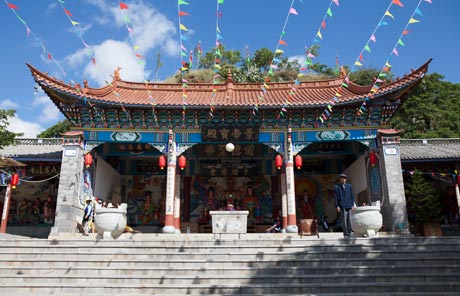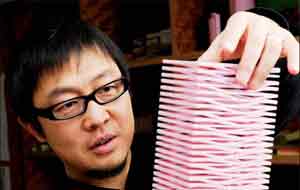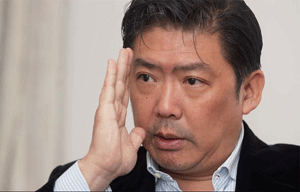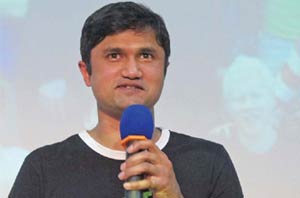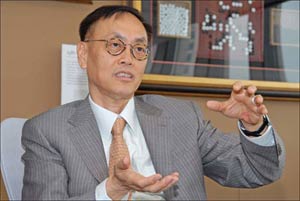Aigo prevails in lawsuit filed against Toshiba
Updated: 2011-10-19 07:52
By Zhang Zhao (China Daily)
|
|||||||||
USB technology battle results in fine and ban
Chinese high-tech company Aigo Digital Technology Co Ltd has prevailed in an intellectual property lawsuit against international electronics giant Toshiba over its technology that enables faster linkage to external hardware.
The Xi'an Intermediate Court in Shaanxi province ruled on Oct 10 that the Japanese company had illegally used the technology developed by Beijing-headquartered Aigo and ordered Toshiba to pay 200,000 yuan ($31,360) in compensation.
Two types of Toshiba's computers using the technology were also banned from sale in China.
In 2006, Aigo applied for a patent in China for its USB Plus and two years later unveiled its first product using the technology. It then registered international patents on the innovation in many countries.
Aigo's technology can provide data transmission speeds six times greater than commonly used USB 2.0 technology. It is suitable for portable hard drives, flash discs and computers.
The Chinese company said more than 100 million computers in the world are using the technology without license, many of them made by foreign giants including Toshiba and HP.
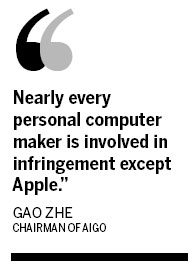
"Nearly every personal computer maker is involved in infringement except Apple," said Gao Zhe, chairman of Aigo.
The company filed lawsuits in April last year against Toshiba and HP's China companies and their major retailers as "representatives of US and Japanese computer companies", Gao said.
"Toshiba lost the case and we hope many other companies still violating our patents will change their mind so that we can talk," he added.
The case against HP is still pending. Aigo asked for 1 million yuan in compensation from HP, while the US computer maker disputes Aigo's claims. One of HP's retailers, a co-defendant in the case, did not respond to a summons to appear in court.
Industry insiders say the outcome of the Aigo-Toshiba case is a "great triumph", but Aigo's intellectual property manager Huang Jing noted 200,000 yuan in compensation "does not reflect the value of the patent violated in the case".
Aigo now owns more than 1,000 patents and has a list of global IT companies that it plans to charge licensing fees, many of them Fortune 500 companies such as Dell, Sony and Samsung.
But Professor Zhang Ping from Peking University's School of Law said the company has a long way to go to reach that goal.
"The case against Toshiba was won in China," Zhang said. "But if Aigo wants to charge global giants licensing fees, it must get ready for international lawsuits."
China Daily
(China Daily 10/19/2011 page17)

